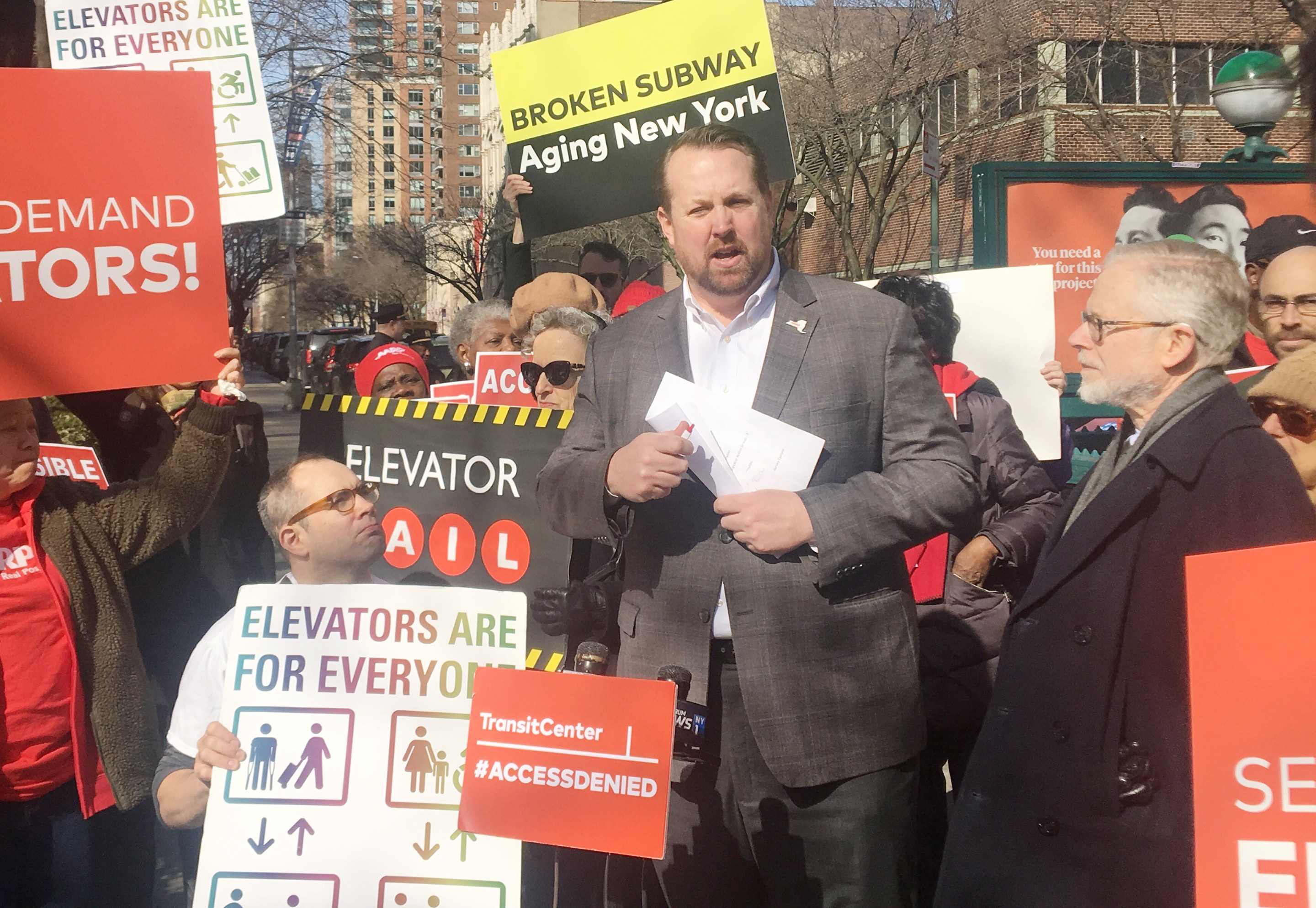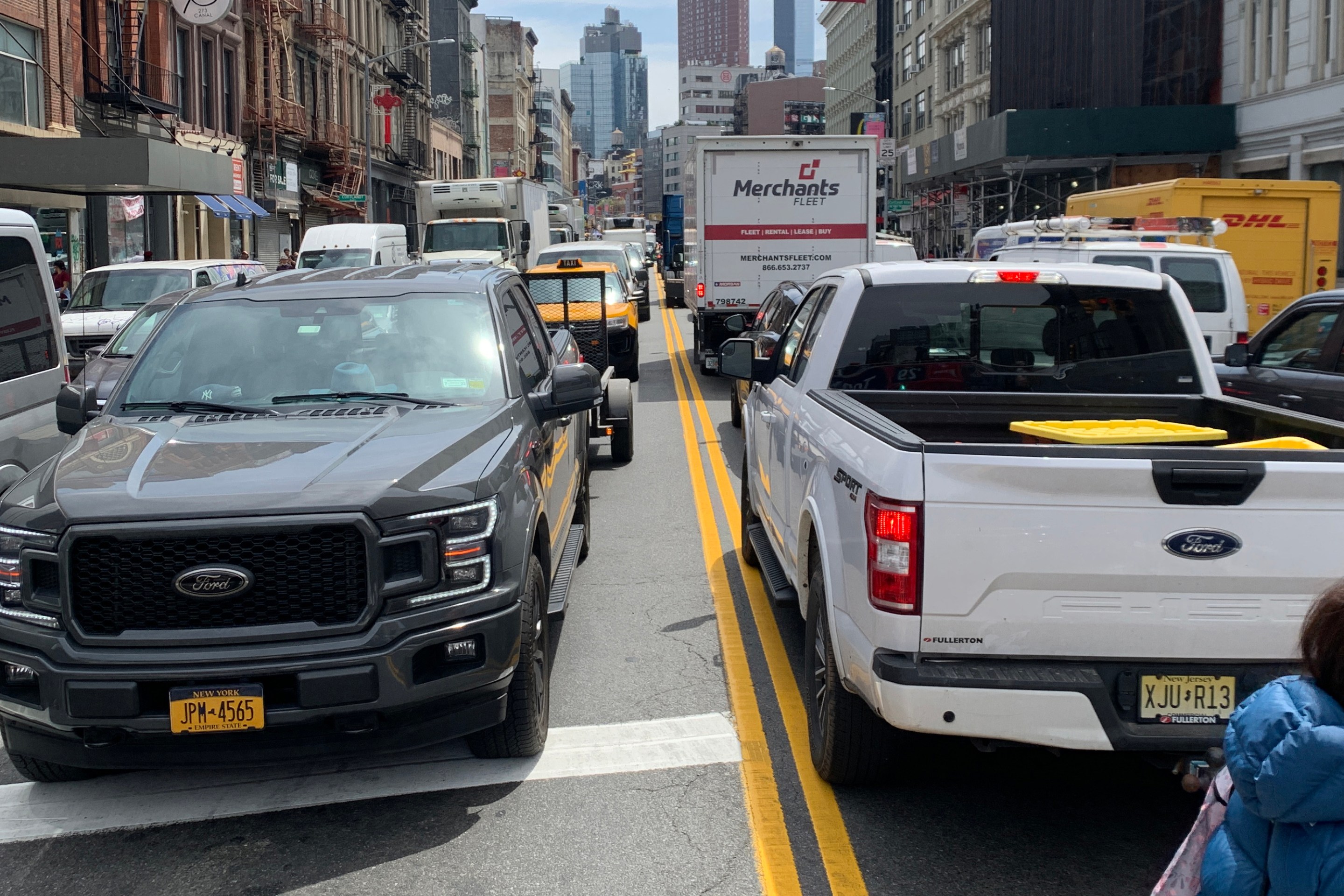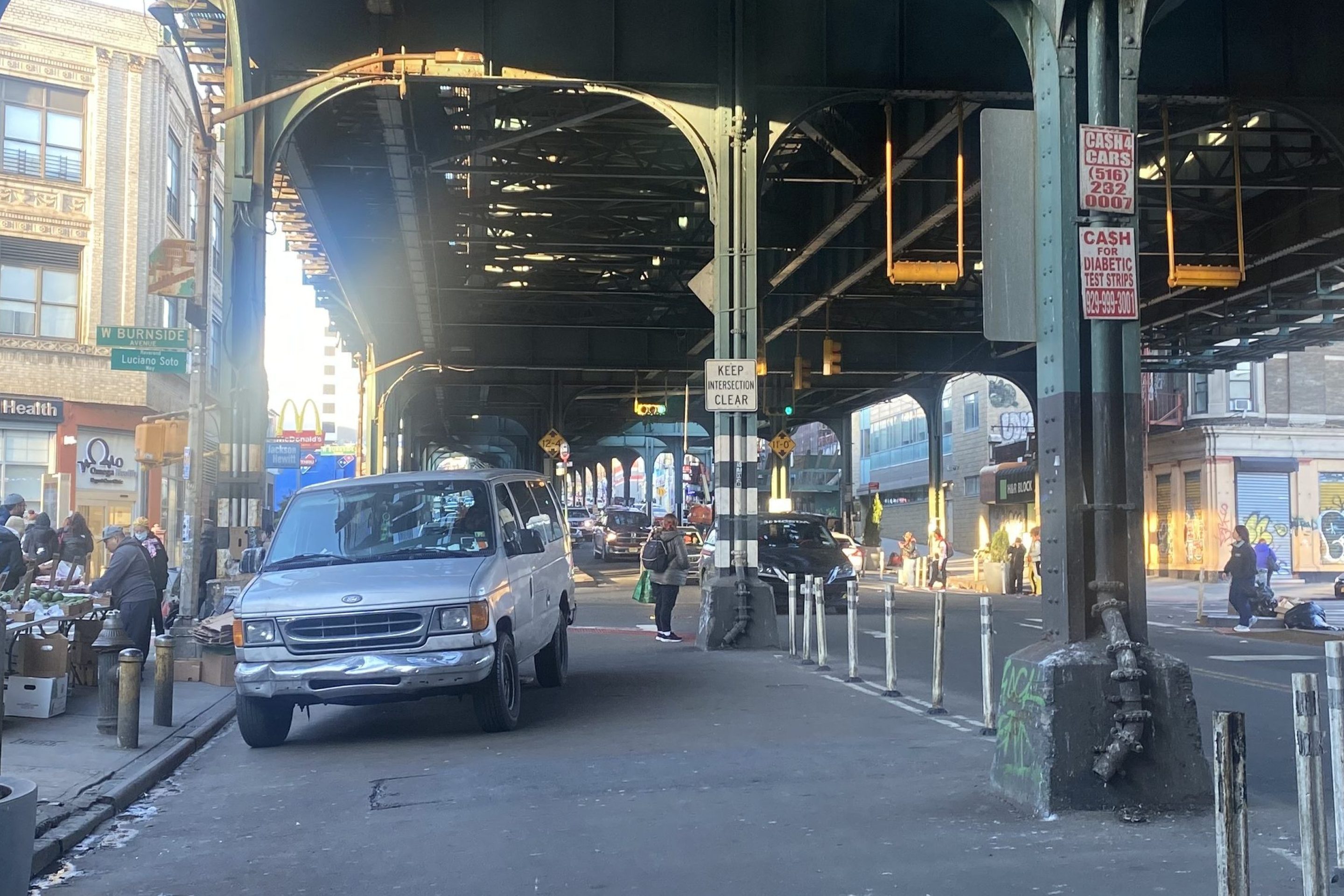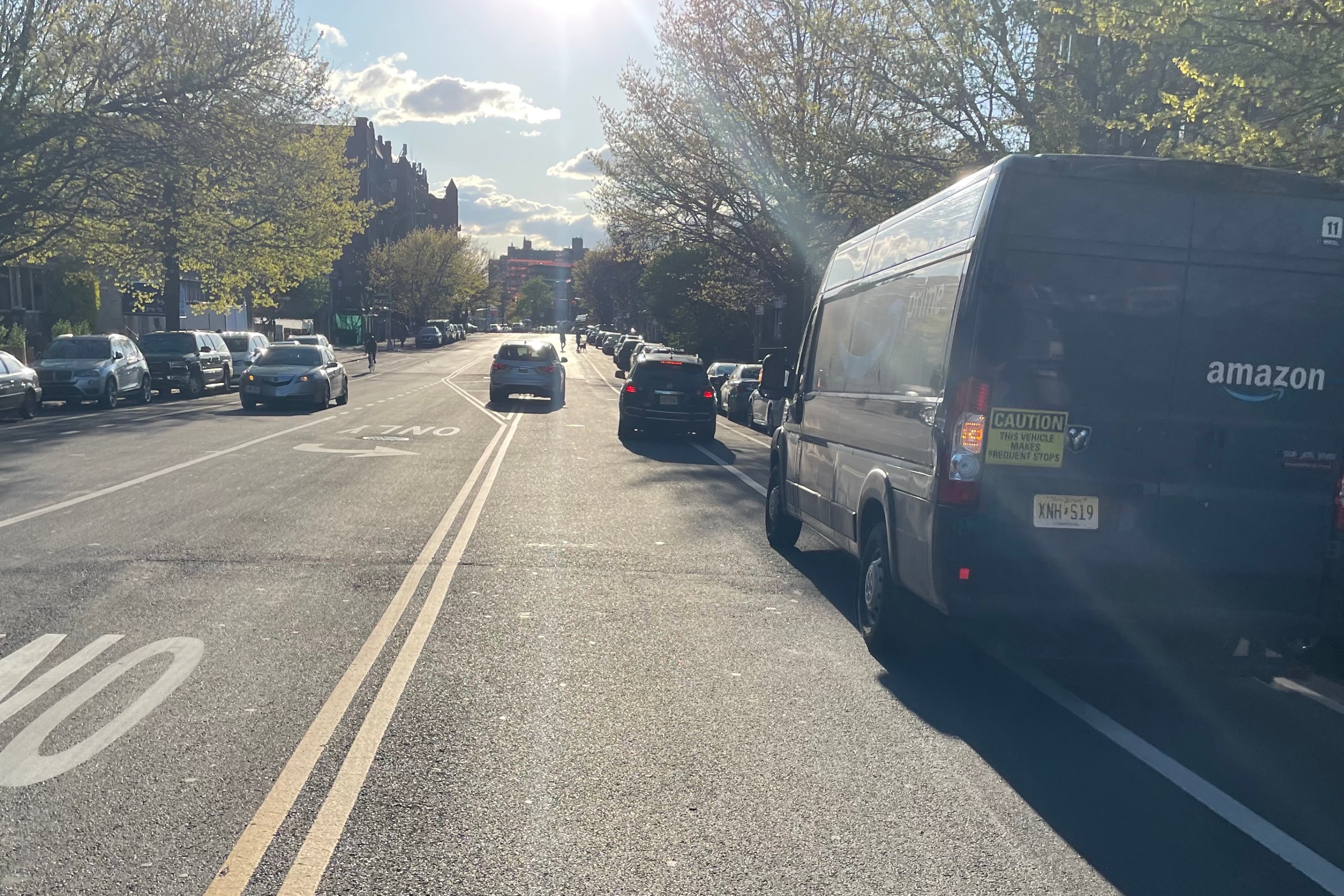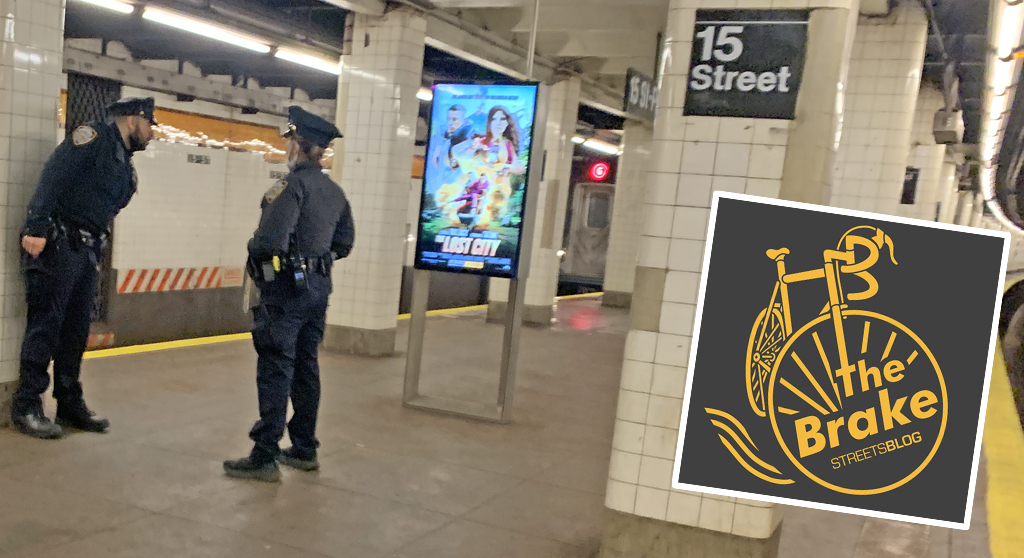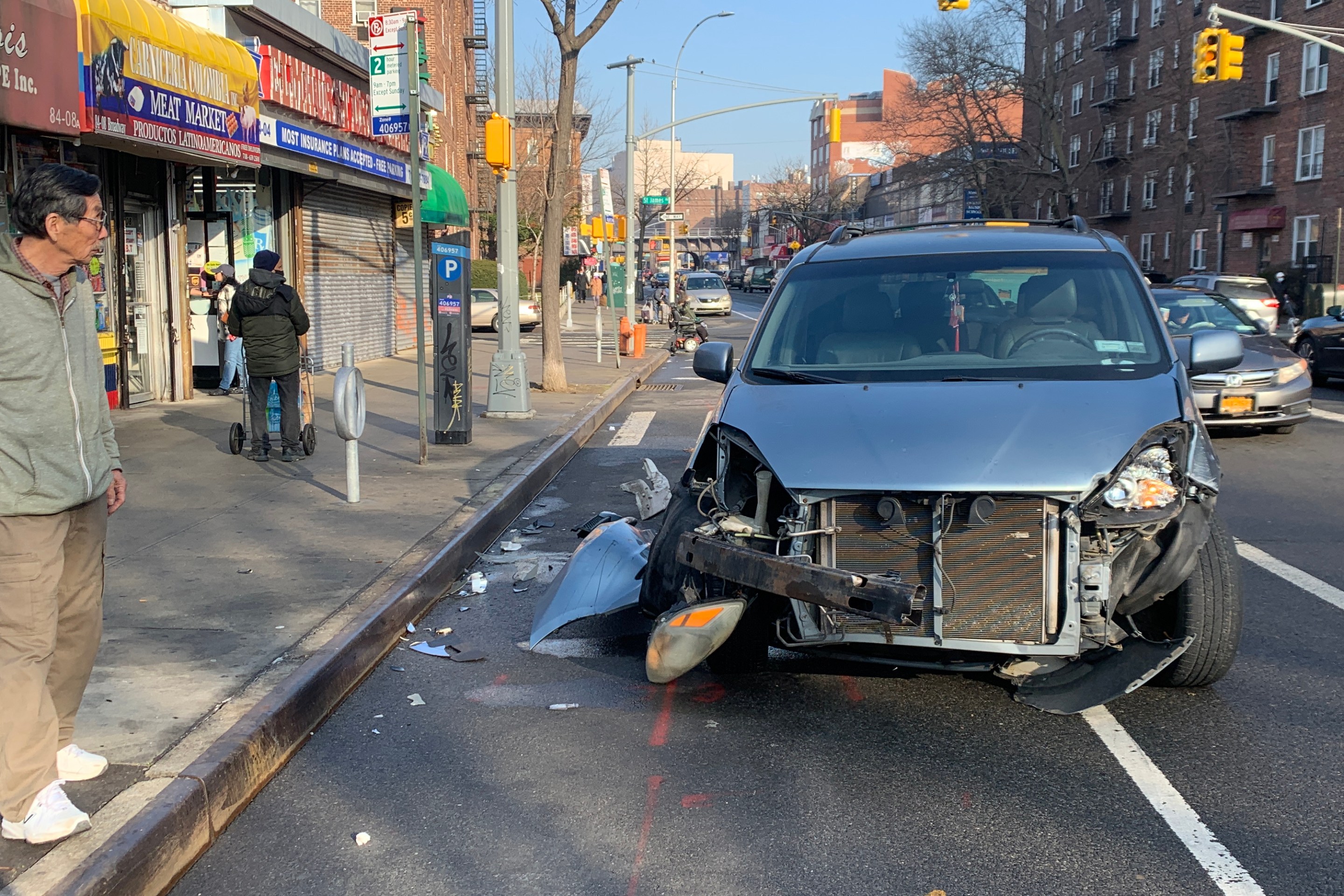Updated | America’s largest senior citizen lobbying group has indicated it could to support congestion pricing to fix the subway — a possible rebuke of anti-toll politicians who claim seniors would be adversely affected.
AARP New York City said it backs congestion pricing as a source of revenue for New York City Transit President Andy Byford's “Fast Forward” plan, which would modernize the subway system and make it fully accessible to seniors and those in wheelchairs.
“We would be very supportive of it,” Chris Widelo, the group's associate director, said Thursday. (For update, see below.)
The senior lobby's support for congestion pricing could send shockwaves through the ongoing debate over tolls for drivers heading into or through Manhattan's central business district. Gov. Cuomo has championed congestion pricing as a way of funding the $40- to $60-billion Byford plan, but opponents — including Queens Assembly Member David Weprin, Council Member Barry Grodenchik and Mayor de Blasio — claim that congestion pricing would unduly burden senior citizens, who supposedly need their cars to get to doctor's appointments in Manhattan.
De Blasio has specifically called for “hardship exemptions” from congestion pricing for the elderly and disabled. But Widelo said that few of the senior citizens he works with rely on private automobiles to get around.
“I can say confidently that many [AARP members] come out to our meetings and attend events — if I asked if any of them took a car here, none of them would say that,” Widelo said. “It’s expensive to have a car in this city, and we know that as many people get older, they tend to give up their keys.”
Weprin disputed this, claiming many seniors in his district rely on cars to get into Manhattan.
“I don’t think that’s accurate,” Weprin said, offering no statistics. “I’ve been contacted by many seniors that do drive into Manhattan for visits to doctors and hospitals, and that do drive into Manhattan to visit relatives who cannot use subways, especially when you’re in a transit desert.
“I’m certainly still going to be opposing congestion pricing in the next budget,” he added. "I don’t think there’s an immediate need."
Widelo said AARP understands that congestion pricing is just one of several possible revenue streams for Fast Forward, but added that it "has to be in the mix."
Congestion pricing remains the most-widely-discussed proposal, and has been estimated to be able to generate $15 billion towards Fast Forward. Other proposals for transit revenue include taxes on legal marijuana sales, reinstating the commuter tax, fees on Amazon deliveries, and a so-called "Millionaires Tax."
AARP announced its support for congestion pricing with transit advocates and elected officials on Thursday at the Penn South houses in Chelsea — a naturally occurring retirement community, yet one not served by a subway with an elevator.
Currently, three quarters of subway stations in New York are just as inaccessible. Byford’s “Fast Forward” plan calls for 50 more accessible stations within five years and making the entire system fully accessible by 2034.
Update/Editor's note: After initial publication of this story, AARP's communication team attempted to deny that Widelo said what he said, which Streetsblog has on tape (and is publishing below). Unsatisfied by the group's apparent about-face about a funding mechanism that supporters say will raise the money AARP demands, we asked Widelo two follow-up questions. Here is that unedited exchange (and a further editor's note below):
Question 1: The subway system needs $40 to 60 billion to fully fund Byford’s Fast Forward plan, which will make the subway system entirely accessible to seniors by 2034. That is a crucial goal of AARP. So can AARP see itself supporting congestion pricing as part of the mix of funding needed to get Byford’s $40 to $60 billion?
Answer 1: AARP’s focus is on making the subway system more accessible. Fully funding the Fast Forward program will require a mix of sources. Congestion pricing has been proposed as one potential funding source, but AARP has not taken a position on the proposal. We will continue to look at all of the proposals and how they might impact our members in New York City and across the nation.
Question 2: The governor of the state of New York wants congestion pricing on behalf of seniors and other subway riders. Is AARP prepared to support that fight or not? If not, why not?
Answer 2: We support fully funding the Fast Forward program, which will require a mix of funding sources. We are reviewing congestion pricing proposals in partnership with our national office, but have not yet taken a position because we recognize the influence New York has on policymaking in cities across the nation.
Editor's note: Here is the transcription of the exchange between Streetsblog reporter Ben Verde and Widelo on Thursday:
Question: Okay. so you'd be happy to see congestion pricing as well as other forms of revenue?
Answer: Yeah. yeah, I think it has to be in the mix, but I don't think it should be the sole, uh, and you know if it does get funded that way I think we would be very supportive of it, but we also want to be realistic, that idea could change with different administrations, and so we don't want to put this plan in jeopardy it needs to be something that has a long term funding stream.
In short, we stand by our original story, but are willing to accept that Widelo publicly aired his and/or AARP's support for congestion pricing prematurely. We look forward to the group's further statements on a matter of life and death to New York's seniors.
